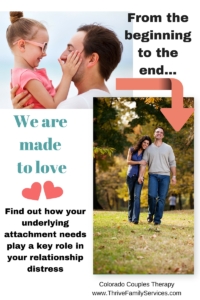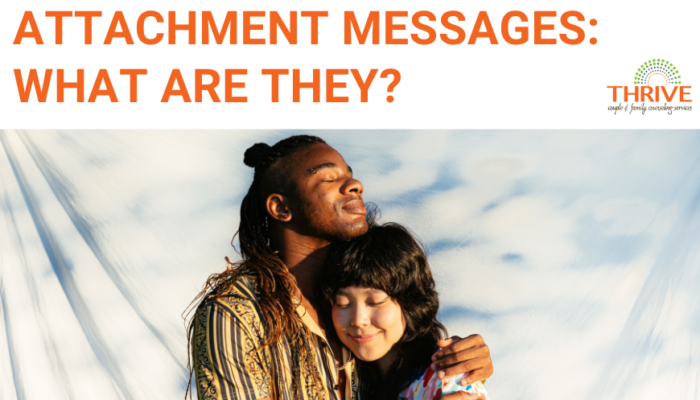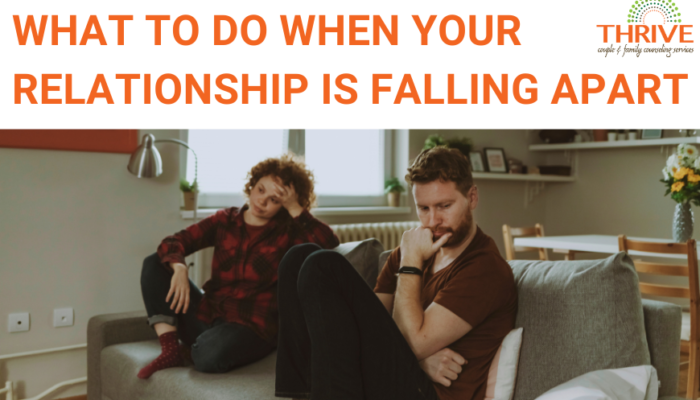Want to improve your relationship? Learn about your attachment style!
Do you know what your attachment style is? Well, you have a style, and, like it or not, your attachment style is affecting your relationship.
Empower yourself!
Francis Bacon said that “knowledge is power” and we couldn’t agree more. To know your attachment style is to better understand your relationships, yourself and your partner.
As couples therapists, we use attachment theory to understand not only what causes problems in relationships, but also how to make things right.
What is attachment theory?
It’s science- We are made to love!
Attachment theory was originally developed by psychologists John Bowlby and Mary Ainsworth. It explains that there are three main “attachment styles” relating in all relationships, from those of parent and child all the way to intimate romantic relationships. Those styles, which can be both fluid and shaped are – Secure, Anxious, and Avoidant.
The 3 Attachment Styles in a nutshell:
Secure people tend to feel comfortable with intimacy and are usually warm and loving.
Anxious people crave intimacy, but are often pre-occupied with their relationships. They tend to worry about whether or not their partners love them back.
Avoidant people tend to equate intimacy with a loss of independence and will try to minimize closeness.
Research has shown that all adults fall into one of these categories, whether they are in a long term relationship, newly dating or are single looking for love.
In the book Attached, authors Levine and Heller (2010) report that 50% of people are secure, around 20% are anxious, 25% are avoidant and the remaining 3-5% fall into a fourth (more rare) category- anxious avoidant.
Why are these attachment styles important?
You should know your attachment style because it influences each of these aspects of your relationships:
- How you define intimacy and closeness
- Ways you respond to conflict
- Your feelings and behavior around sex
- Ability to communicate your wishes and needs
- Expectations of your partner and the relationship
Attachment System – the alarm company protecting your relationships
This “attachment system” is our brain’s way of seeking safety and protection by staying close to our loved ones.
It’s like an alarm company for our most important relationships.
When our relationships are secure, our body responds with a rush of physical and emotional sensations of well-being. When our relationships are difficult, we will feel awful all over – our body sensations, perceptions, emotions and behaviors.
It’s in your genes
The human brain is designed to create and regulate connection with our attachment figures. In other words, we’re actually born to be dependent on another.
There are long evolutionary ties to this system, as our ancestors lived in a time when being close to a partner and to our community meant the difference between life and death.
Although most of us very rarely face the threat of wild animal attacks or imminent battles, the threat of not feeling important to your partner or being rejected signals the same alarm bells.
Attached – cradle to grave
This system is activated the moment we come out of the womb and evolves as we reach adulthood. It explains why strong, consistent and healthy attachment figures are so important to children and why children that are neglected, abandoned, or separated from their mother may become frantic or cry uncontrollably until contact is made again.
This is powerfully (disturbingly?) illustrated in the Dr. Edward Tronick’s Still Face Experiment (https://www.youtube.com/watch?v=apzXGEbZht0).
Numerous studies show that once we become attached to someone, the two form a physiological unit: our partner regulates our blood pressure, our heart rate, our breathing, and the level of hormones in our blood (Levine and Heller, 2010).
This suggests that dependency is in our biological make up. It is not a choice.
No wonder relationships have such a significant impact on our well-being, both positively and negatively!
Dependency is not a flaw
If you follow relationship advice in magazines and pop culture, you will get recommendations such as:
- Don’t make yourself too available
- Say you’re busy even when you’re not,
- Don’t call first
- “Play the game”
- Don’t appear needy
Our culture tends to promote independence and labels us codependent if we depend or need others. If we trust the magazines, dependence is a problem and something we need to “fix”.
What the research shows, is actually the opposite. The more secure the relationship, connection and bond, the more independent, and happier one feels and the healthier we are, both physically and mentally.
The courage to step out into the world on your own and take risks, actually develops from the re-assurance that there is someone beside you that you can count on. Levine and Heller (2010) call this the “dependency paradox”.
What we do when our attachments are threatened
Whether it’s anxious/protest behavior (crying, screaming, yelling) or withdrawal/avoidance behavior (shutting down, going numb, avoiding confrontation), these behaviors are triggered by our attachment system alarm bells and are ultimately designed to protect us.
Sometimes, you might even reach out for reassurance about the relationship in more subtle ways, like via sex.
In our romantic relationships, however, these reactions can start to form a dance or negative cycle that becomes quite destructive.
Becoming attached means that our brain begins to seek closeness with our partner, ensuring that they will be reliable, consistent and available. If the partner fails to reassure us, our attachment system is programmed to cue continued attempts to achieve closeness, which unfortunately, are not always successful.
“It is the goal in Emotionally Focused Therapy to show couples how to understand and use their attachment instincts rather than fight them to create a happier, healthier and more secure relationship bond.” Dr. Sue Johnson
Curious about how this applies to you? Find out which attachment style fits you and stay tuned to learn how to use this information to start to heal your relationship.
Call us today at 303-513-8975 to learn more about how attachment theory can help your relationship. Or, schedule a Denver Tech Center couples counseling appointment here, using our simple and secure online scheduler
For a fully validated attachment questionnaire: log on to Dr. Chris Fraley’s website at: www.web-research-design.net/cgi-bin/crq/crq.pl
For more information, refer to: Attached by Amir Levine and Rachel S.F. Heller (2010)





